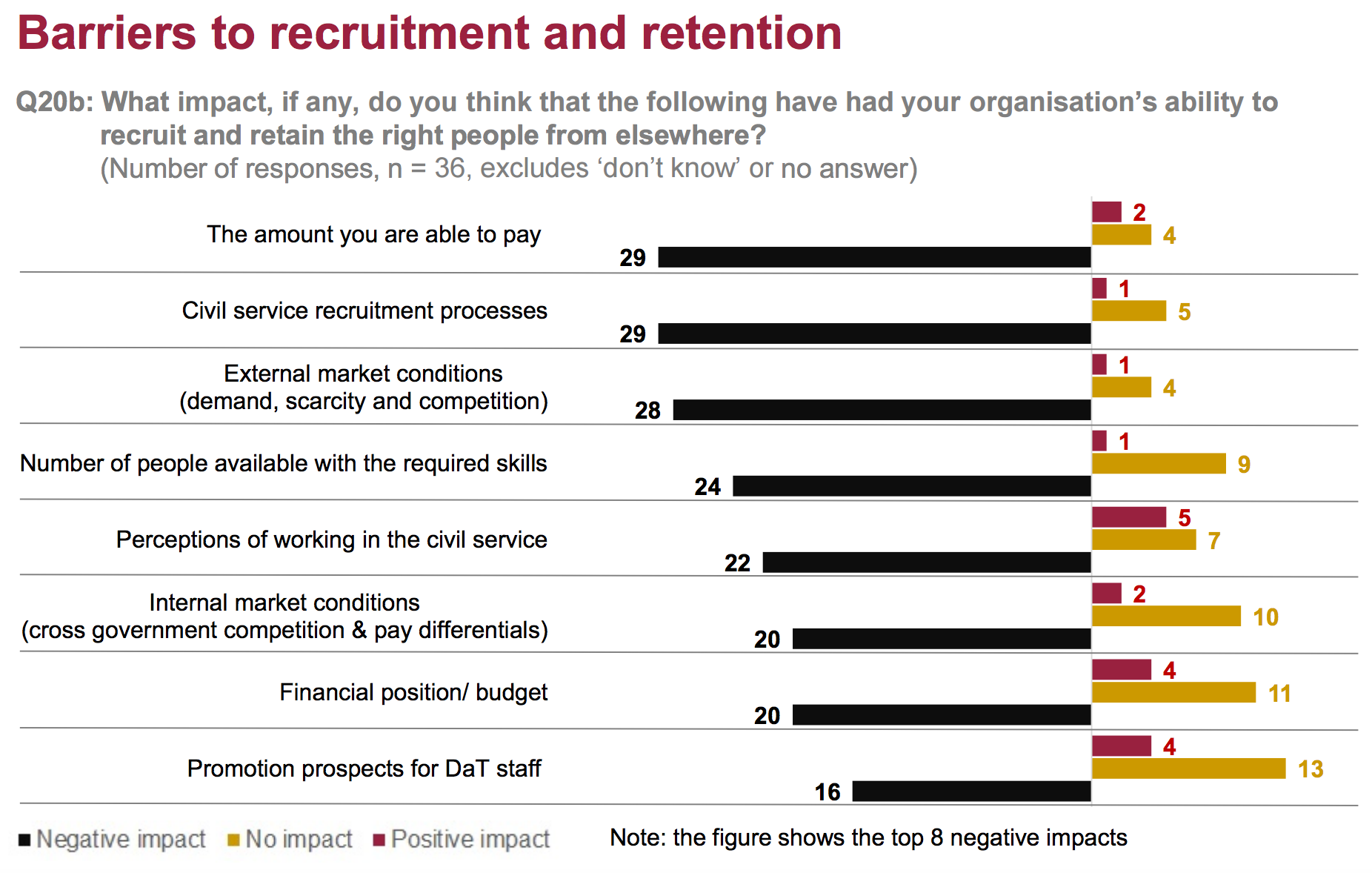- 47% stated that it will be harder to attract non-British talent to work in their company.
- 90% of digital agencies have at least one non-British European employee.
- 18% stated their company is 100% white.
- Only 6% of UK digital agencies are more than 50% female.
Brexit
Though nearly half of agencies are concerned about the impact of Brexit, this is arguably a very subjective issue, given the detail of Brexit is yet to be determined.
However, research from Tech London Advocates (polling 3,000 senior members of the London tech scene) showed that 81% of respondents thought Brexit would make it harder to employ people from EU countries.
The impact on the economy remains to be seen. New research from Accenture has revealed that retail spending could increase this festive season (85% hinted at spending the same or more), hinting that economic impact may be delayed until later in 2017.
The skills gap
The BIMA study also found that each digital agency had an average of 3.5 unfilled vacancies, with vacancies taking nearly eight weeks to fill.
Worry about a digital skills gap has been echoed in many studies over the past couple of years,
Econsultancy’s 2015 research into organisational structures and digital leadership (Effective Leadership in the Digital Age) showed that a rennaissance in IT systems and processes has left skills shortage as the main barrier to digital progress.
The skills shortage was identified by 40% of senior respondents as an issue.

The Government has also warned of a digital skills gap, with a House of Commons Science and Technology Committee report estimating it costs the UK economy £63bn a year in lost additional GDP.
Internally, too, the Government has concerns, with the National Audit Office publishing a survey of Government departments showing the skills gap (external market conditions & number of people available) behind only salary and red tape as major hurdles (see chart below).
Though factors such as a growing gig economy may go some way to alleviating recruitment problems, it is still a major concern.
Chart showing Government departmental barriers to recruitment

Diversity
Diversity has been a key issue in marketing, tech and advertising throughout 2016. The resignation of Kevin Roberts from Saatchi & Saatchi after ill-advised comments about gender diversity in the industry was perhaps an illustrative example.
Roberts’ parting statement summed up the feeling in the wider industry, stating “I believe that new thinking, frameworks, and measures are needed to make more rapid progress on diversity in all its forms, in all professions and occupations. Hopefully, the focus on this serious and complex issue will gather momentum.”
Though brands such as Unilever are campaigning on the issue as part of their own consumer-facing communications, there’s work to be done.
Econsultancy’s Careers and Salary Survey in 2016 showed a difference of c.£8000 on average between female and male marketers and digital specialists.
Even once seniority was accounted for, men earned more for the majority of roles (though salary was similar for the two largest categories, marketing execs and marketing managers).

Bridget Beale, managing director at BIMA said: “Agencies are already crying out for diverse talent; and they are clearly worried that Brexit will further narrow the talent pool.”
“Our message to young people in schools all across the UK is simple: we have jobs for you – and they’re some of the most fulfilling and exciting jobs in the world.”
Econsultancy’s 2017 Salary Survey is now open. The research is being conducted to benchmark marketing salaries in the UK, results will be free to access in the new year.

Comments